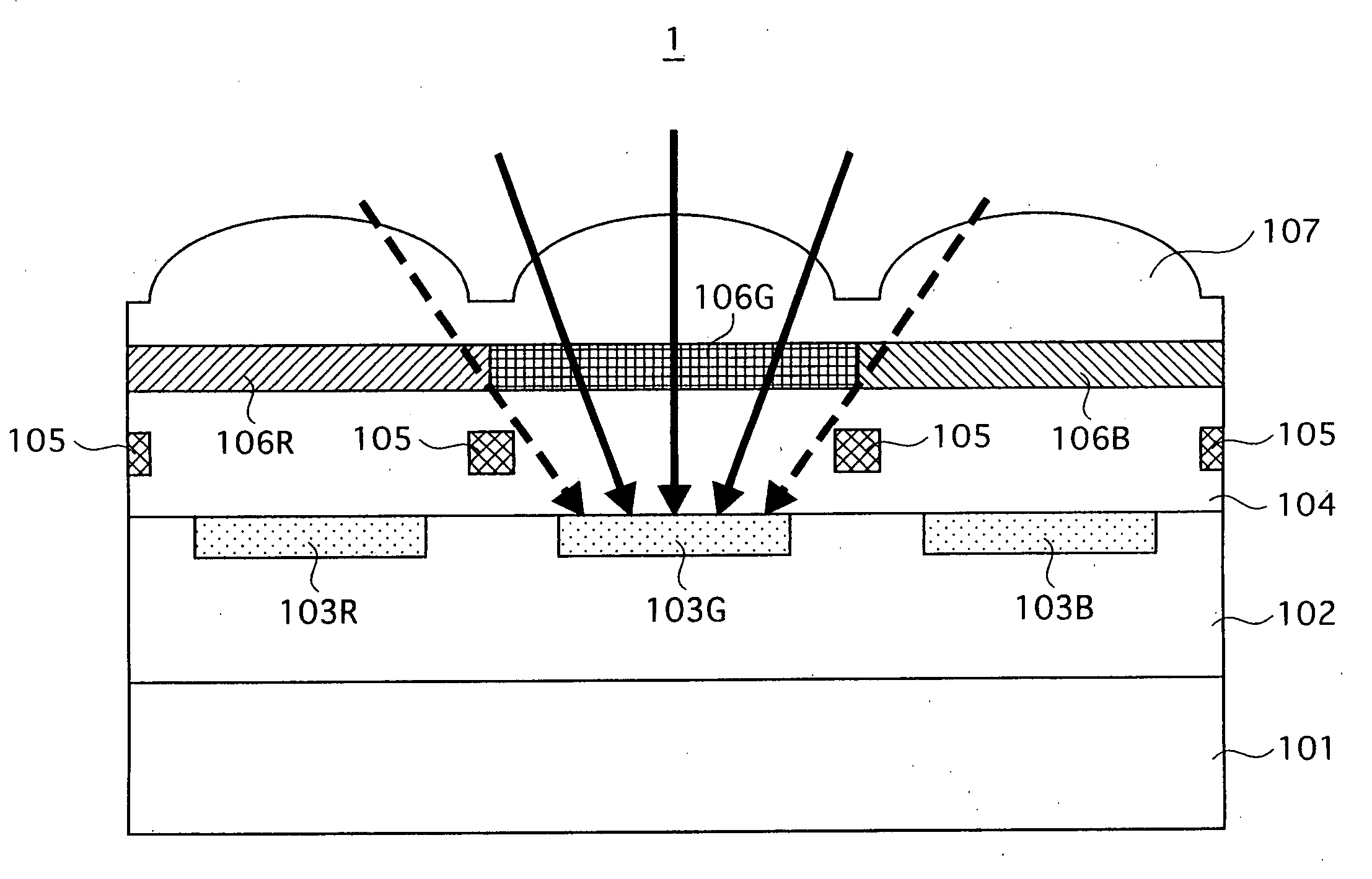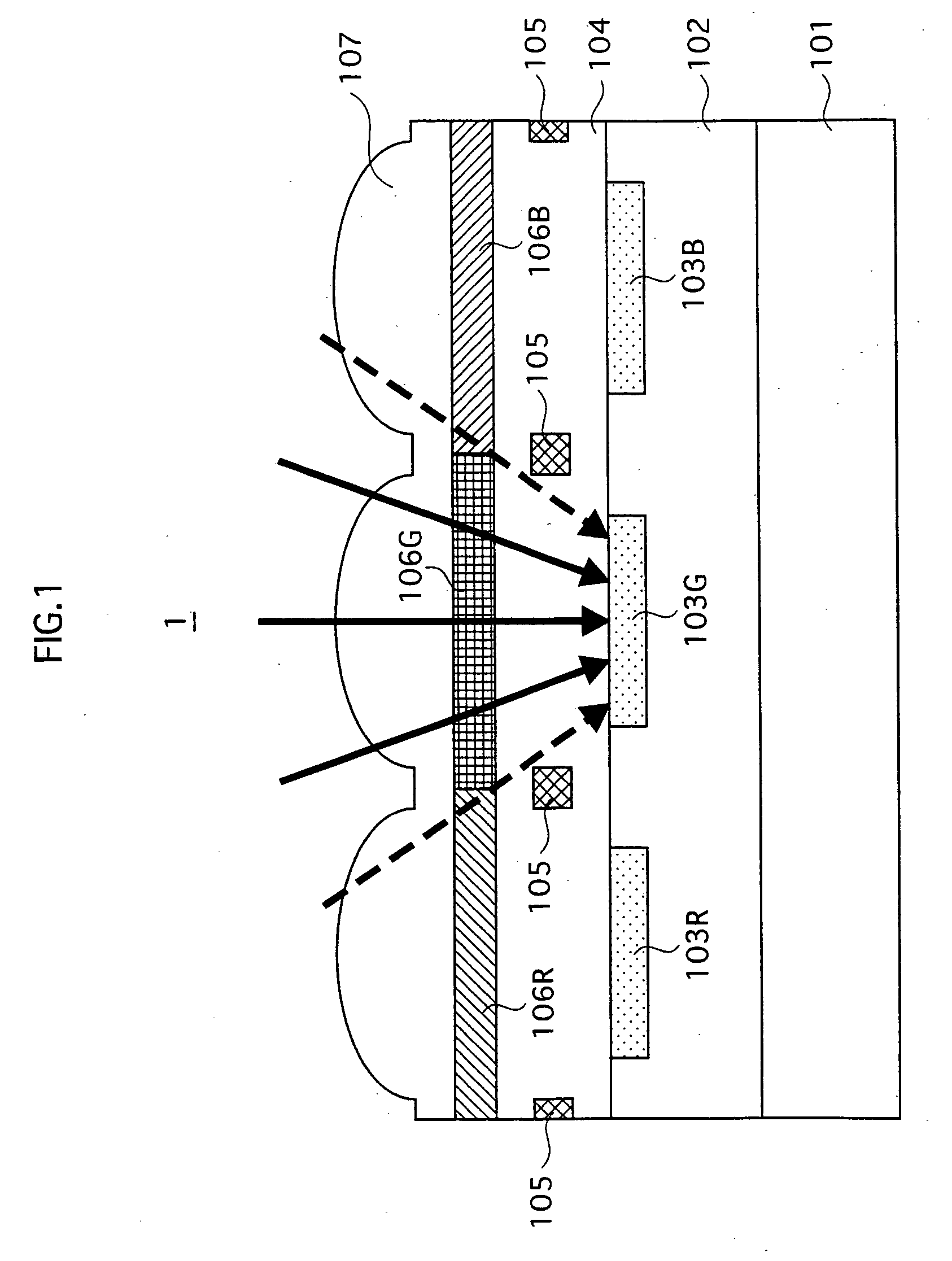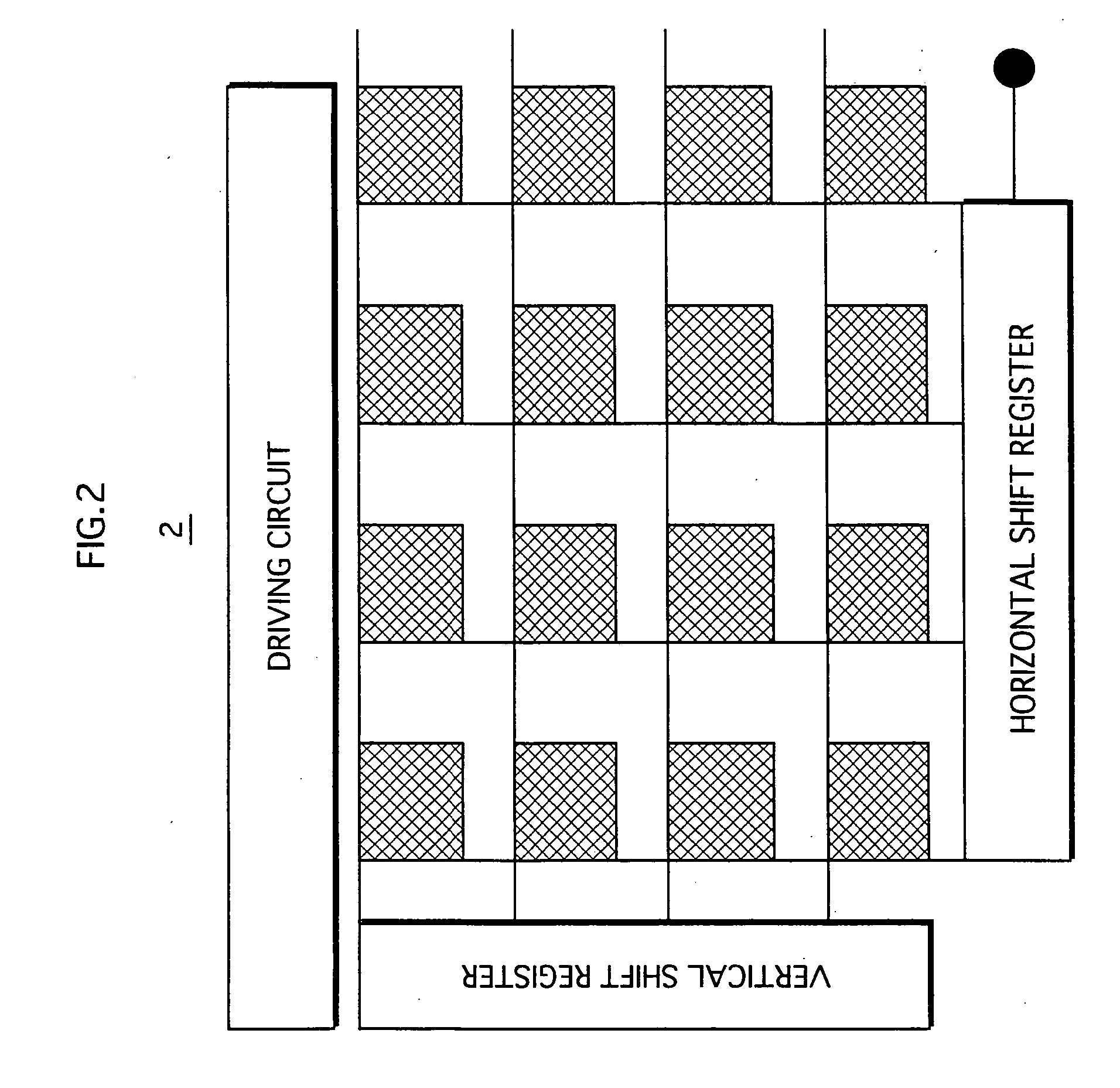Solid-state imaging device, manufacturing method for solid-state imaging device, and camera using the same
a manufacturing method and imaging device technology, applied in the field can solve the problems of reducing the size of pigment particles, reducing the resolution and wavelength sensitivity, and increasing noise, so as to reduce the distance between the light shielding film and the light-receiving element, reduce the manufacturing method of solid-state imaging devices, and prevent color mixing
- Summary
- Abstract
- Description
- Claims
- Application Information
AI Technical Summary
Benefits of technology
Problems solved by technology
Method used
Image
Examples
first embodiment
[0089] (1) First Embodiment
[0090]FIG. 2 is a plan view illustrating the construction of the solid-state imaging device of the first embodiment. As shown in FIG. 2, in the solid-state imaging device of the first embodiment, unit pixels (shaded parts), which are light-receiving units, are two-dimensionally arranged. A vertical shift register selects a row, and a horizontal shift register selects a signal in a pixel in the selected row. In this way, a color signal corresponding to each pixel is output through an output amplifier (not illustrated). A driving circuit causes the vertical shift register, horizontal shift register, and output amplifier to operate.
[0091]FIG. 3 is a cross -sectional view illustrating the construction of a solid-state imaging device 2 of the first embodiment of the present invention. Specifically, it shows three neighboring pixels in cross-section. As shown in FIG. 3, the solid-state imaging device 2 includes an N-type semiconductor substrate 201, a P-type se...
second embodiment
[0096] [2] Second Embodiment
[0097] The following describes the second embodiment of the present invention. The solid-state imaging device of the second embodiment largely resembles that of the first embodiment, but differs in that the color filter is composed of photonic crystals.
[0098] Photonic crystals are microstructures in which materials of differing permittivities and refraction indices, such as the semiconductor substrate and air for instance, are arranged in alternating layers, such that two contacting layers have a thickness of the order of the wavelength of light. Besides functioning as a filter that transmits only light of a specific wavelength, photonic crystals have the property of conducting incident light in a specific direction. Photonic crystals that do not transmit light of the particular range of wavelengths corresponding to the width of their band gap, namely photonic crystals having a photonic band gap are introduced in the following document:
[0099] NODA Susum...
third embodiment
[0101] [3] Third Embodiment
[0102] The following describes the third embodiment of the present invention. The solid-state imaging device of the third embodiment largely resembles that of the second embodiment, but differs in the positioning of the shielding film.
[0103]FIG. 4 is a cross-sectional view illustrating the construction of a solid-state imaging device of the third embodiment. As shown in FIG. 4, the solid-state imaging device 3 includes an N-type semiconductor substrate 301, a P-type semiconductor layer 302, light-receiving elements 303R, 303G, and 303B, insulation layers 304 and 307, a light shielding film 305, color filter 306R, 306G and 306B, and micro lenses 308.
[0104] The solid-state imaging device 3 is structured such that the P-type semiconductor substrate 302, the light-receiving elements 303R, 303G, and 303B, the light-transmitting insulating layer 304, the light shielding film 305, the color filter 306R, 306G, 306B, and the micro lenses 308 form respective layer...
PUM
 Login to View More
Login to View More Abstract
Description
Claims
Application Information
 Login to View More
Login to View More - R&D
- Intellectual Property
- Life Sciences
- Materials
- Tech Scout
- Unparalleled Data Quality
- Higher Quality Content
- 60% Fewer Hallucinations
Browse by: Latest US Patents, China's latest patents, Technical Efficacy Thesaurus, Application Domain, Technology Topic, Popular Technical Reports.
© 2025 PatSnap. All rights reserved.Legal|Privacy policy|Modern Slavery Act Transparency Statement|Sitemap|About US| Contact US: help@patsnap.com



